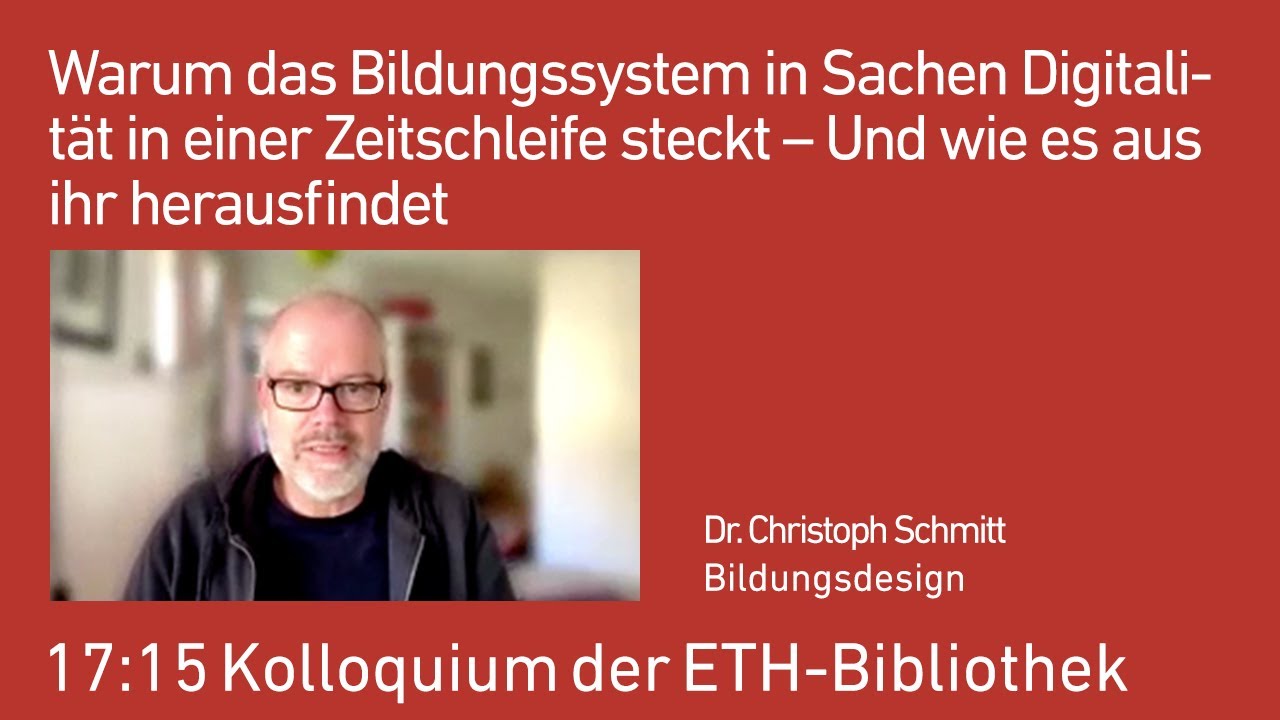Why the educational institutions are stuck in a loop when it comes to digitality – and how they can break the cycle
Dr. Christoph Schmitt, Bildungsdesign

How is the digital transformation affecting how we work and learn? Can our traditional concept of education keep up with this transformation? You can find out the answers to these questions in this Zoom colloquium.
What does digitality mean in education?
You have no doubt noticed the fundamental changes being brought about by the digital transformation. This transformation is changing the way we work and learn, the way we live together as a society, and the way we participate in the political process. Unfortunately, digitality is also contributing to a rise in racism, sexism, political extremism and inequality due to the digital divide.
These phenomena show us that our culture is undergoing a transformation, and digitality is contributing to this process. Culture and technology have an almost symbiotic relationship – each one influences the other.
Consider every aspect of digitality
As part of discussions of the subject of digitality, we often fail to consider how it is changing our culture. When talking about the future of education, we tend to reduce digitality to online teaching, virtual lessons, digital learning and online exams.
We neglect to discuss how digitality changes education as a phenomenon at the core of our culture, and how the digital transformation affects teaching and learning. Can our traditional concept of education keep up with the requirements of an increasingly digital culture.
Can our traditional concept of education keep up with the digital transformation?
We are trying to revitalise the traditional concept of education with new technology – but education today is a much more complex topic than it used to be. Unfortunately, schools and universities seem to be the most sceptical group when it comes to embracing digitality and the least willing to confront the issue, which seems to increase the scepticism.
How can we change this situation?
The answers can be found in education – we can approach the topic in an open, curious, investigative, experimental manner and consider it from different perspectives. We need to learn, acquire more knowledge, and take the entire process and transformation into consideration, including cultural and economic developments. From this starting point, we can try to adapt our learning and teaching methods to the new digital age.
We need an educational transformation
It is time to enter a new discourse on education in the context of digitality – a discourse on how we can redefine education instead of just reorganising it.
Dr Christoph Schmitt advises educational organisations and companies on fostering a culture of digitality and the development and accreditation of innovative education courses. With his company Bildungsdesign, he supports a number of universities, baccalaureate schools and training centres in the areas of digital education processes, initialising digitisation processes, school development and improving education. He developed a training concept for digital literacy for the Lucerne University of Applied Sciences and Arts, and has many years of experience as a coach and supervisor in different organisations. He views himself as a thought leader in the German-speaking world when it comes to education in the context of digitality, and has written several books, including the 2017 title “Digitalisierung für Nachzügler. Einsichten eines digitalen Immigranten“ (“Digitisation for late adopters. Insights from a digital immigrant”). He has written a blog on this subject and the idea of establishing a digital follow-up project to the culture of books for several years – external pagelearnflow.citycall_made.
